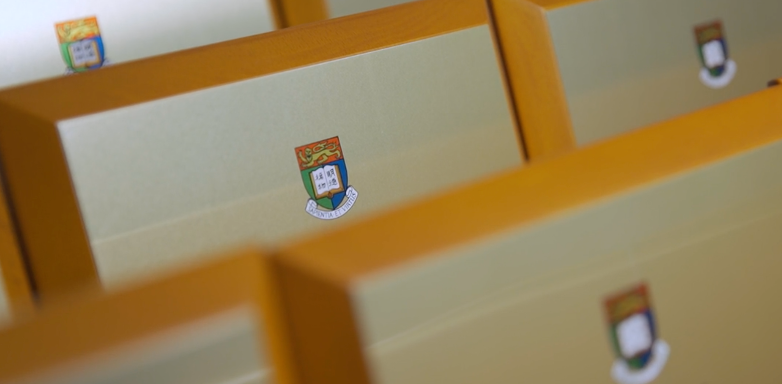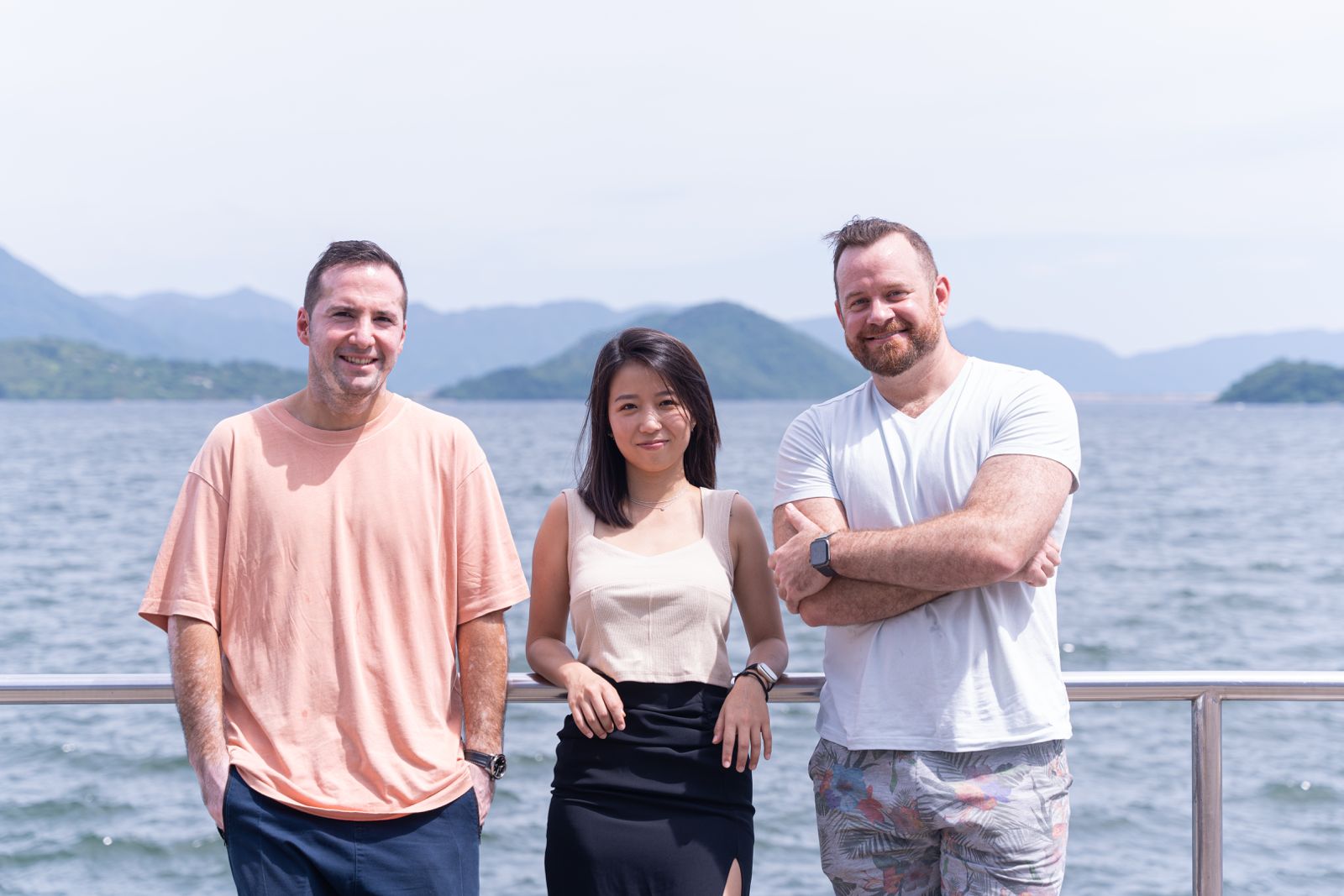

{{'Newsletter' | t}}
How Vriko Yu Launched Her Startup to Combat the Effects of Climate Change

Vriko Yu is an HKU PhD student in Biological Sciences and the co-founder and CEO of Archireef—a spin-out company from HKU that creates the world’s first 3D-printed clay reef tiles for coral restoration. Archireef has been recognised as an UpLink Top Innovator by the World Economic Forum, a New Economy Catalyst by Bloomberg, and featured on Forbes Asia 100 to Watch list. To date, Vriko’s startup has restored about 500 sqm of marine ecosystems in Hong Kong and Abu Dhabi with eco-engineering solutions. Vriko’s impact on marine conservation has garnered international recognition and she is now serving as a member of the Green Technology and Finance Development Committee, HKSAR Government; the Education Committee, WWF Hong Kong; and the Marine Ecology Enhancement Fund Management Committee, Airport Authority Hong Kong.
1. Tell us the story about your startup. How did you come up with the idea of creating the world’s first 3D-printed tiles for artificial reefs, and what is the mission behind your work?
At the very beginning, we tried using traditional methods and tools such as PVC pipes, plastics, metal rebar, concrete blocks, and cinder blocks. But we soon realised that these solutions don’t necessarily create a stable substrate for coral communities. So, Dr Baker and I came up with the idea of creating something eco-friendly that has the structural complexity to develop a micro-habitat but is also adaptable to the local environment for corals. That’s where the other two co-inventors, Dr Christian Lange and Lidia Ratoi from the Faculty of Architecture, offered the techniques for 3D-printed clay.
Once we had the solution, Dr Baker and I realised that our mission was to go beyond experimentation and into production. We then co-founded Archireef to accelerate the commercialisation together with Mr Deniz Tekerek, my mentor who we were linked up with through HKU iDendron. That’s how the three of us came together to formulate a business model that would allow us to engage the private sector, tap into the Environmental, Social, and Governance (ESG) market, and also leverage the resources in making a tangible contribution to restoring the greater marine ecosystems.
2. What was the biggest challenge when you started your company? How has the University supported your startup development?
One of the biggest challenges I had was the lack of experience. I co-founded the company in the middle of my PhD—which I am still trying to finish—so without the proper working experience, there are some operational details or approaches that I simply need time to navigate. HKU, through iDendron and TSSSU@HKU, offered the training, guidance, and mentorship that I needed.
There are many occasions when you need to make the right business decisions. I was very lucky to have all these resources and good advisors around me that I met at HKU. Aside from that, as a startup we also faced some financial constraints. Our initial funding through iDendron and TSSSU@HKU helped us to survive at the very beginning before we could secure revenue.
3. What was the experience like partnering with your supervisor in commercialising your research?

co-founder Mr Deniz Tekerek (left) and Dr David Baker (right).
The experience was actually very empowering. I really appreciate that Dr Baker always believes in me and the rest of his students that if we have a mission and ambition, we will be able to do it. I think that’s the entrepreneurship spirit—you don’t have to know everything before you do anything.
I can’t say that I made all the right decisions, but I think it is very powerful to be given the faith and trust to be responsible for the decisions that I made by my academic supervisor Dr. Baker, who is also my business partner, and by my other co-founder Deniz.
I think that’s the entrepreneurship spirit—you don’t have to know everything before you do anything.
4. How do you strike a balance between being a PhD student and a CEO of a startup?
I have to be honest, it’s not easy, in fact it’s hard. I am still trying to finish my PhD, so in that sense, I am not really finding a good balance. But wearing the dual hats of both a PhD student and a startup founder really opens my eyes to understanding how science can work outside of academia. The motivation in running this as a business is knowing how science can potentially operate outside of academia and how it can generate significant impact in the real world. I think that integration is really exciting and keeps me going, including finishing my PhD.
In practical terms, the balance is just a matter of managing your time. Much of my time is spent on the business at this moment, but I’m also a trying to divide my time up in a way where I can focus on one thing at a time. The only thing that I can do is to segment my days or my weeks to enable me to really focus.
5. What is your advice to fellow research postgraduate students who want to set out on an entrepreneurial journey?
I have received much encouragement to step outside of my comfort zone, not only from my supervisor and now my business partner, but also from numerous people within the University and in Hong Kong. The many incentives available help young entrepreneurs to kick start their first few years from inception and to build up their product development. In addition, there is a lot of advice, training programmes, and workshops to help equip them with business understanding, even if they are not MBA students.
We typically used to categorically say that scientists are scientists, and just define them within a small subject area and sat in an ivory tower. I don’t think that’s the case anymore. We are now living in an era where everything has to be a ground proved. Science is more impactful than ever before. It is no longer an exclusive subject matter that can only be found in academia, as it is really integrated into different businesses and different subjects.
As a science student and an academic researcher, the key is to be adaptive and to integrate logical thinking into different settings. The cost of trying is actually very affordable and there are great opportunities outside of what we typically expected in the past. I would just say to keep on trying if you find something that you are interested in developing.
6. Archireef has recently expanded into Abu Dhabi. Could you tell us about any future plans or projects you have in the pipeline?
We expanded to Abu Dhabi, which has also become our operation headquarters. The Middle East is extremely interesting when it comes to spearheading new solutions and innovation in the sustainability space in particular, so the plan for us is to further enhance our deployment and go beyond Abu Dhabi into the rest of the Emirates in the next few months.
We would like to see more of our solutions deployed in the Middle East along the Arabian Gulf. We are also exploring opportunities in the Red Sea focusing on Saudi Arabia. The Middle East in general has an appetite to support innovations, and the buy-in from the private sector is strong as well. I believe that the Middle East is going to be a scene setter in defining the future of sustainability with the help of innovation and technology.
Archireef is deploying reef tiles in Hong Kong and UAE to help restore corals and the marine ecosystems there.
